The popularity of CBD oil for stress in Australia has recently exploded.
It offers people a natural way to manage their stress better and stay relaxed.
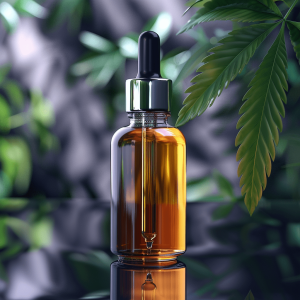
CBD oil is a natural product extracted from cannabis that isn’t intoxicating or addictive but can be taken for its ability to help with relaxation and mental calmness.
It assists stressed-out people in managing their emotions better and building resilience against stressors. Many take CBD oil in Australia today to stay calm and composed before a stressful meeting or conversation.

For others, products like CBD gummies for stress are a daily necessity to get relief from chronic stress symptoms.
These products support stress-sensitive individuals in maintaining better sleep, immunity, mood, and cardiovascular health.
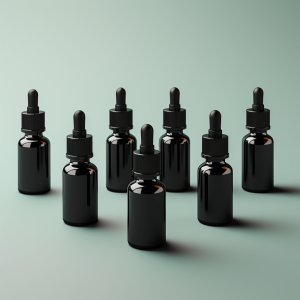
Most people today deal with copious stressors from work, family, finances or social circumstances. But it doesn’t mean these have to be a constant source of mental angst.
Reducing sensitivity to stressors and retaining a mindful mental state is vital in regaining control.

CBD oil helps people to achieve this through its anxiolytic or anxiety-reducing properties. Its mental effects through the brain’s natural cannabinoid receptors allow it to help calm the mind, balance mood, aid with focus, and reduce stress sensitivity.
Let’s discuss the best CBD oil for stress in Australia and explain why it’s so effective for relaxation. This will help you consider whether it’s worth using. We’ll also examine how to use CBD products to relieve stress and help regain mental peace.
Contents
Benefits of CBD Oil for Stress Relief

You’ve probably heard of CBD oil’s benefits in alleviating stress.
It’s become a household name in Australia as a natural remedy for reducing angst and restoring calmness.
CBD, or cannabidiol, is a natural extract from hemp that has properties that enable it to lower stress and soothe the mind.
How does it do this?
Lowering Stress Sensitivity

CBD oil’s primary benefit for stress relief is its ability to lower sensitivity to stressors.
A ‘stressor’ is simply any situation that makes us feel stressed. It’s a trigger, such as an uncomfortable conversation or a new bill we can’t pay.
Reducing susceptibility to these factors causing mental or emotional strain is a crucial advantage of using CBD products in Australia.
These alter how we experience stress through the stress response. This is a process that occurs in reaction to dangers or stressors. The hypothalamus and autonomic brain regions trigger arousal, awareness and the release of stress hormones.
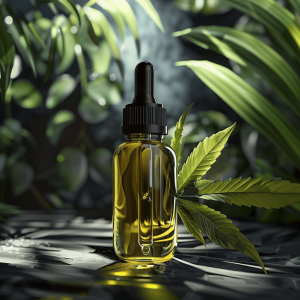
This all occurs automatically (hence ‘autonomic’). It’s a nervous system response that’s out of our control.
But when CBD binds to cannabinoid receptors in these brain regions, the stress response changes. Endocannabinoids can mitigate stress response sensitivity, meaning the response becomes dampened and more resilient to stressors.
In fact, CBD oil is so effective at this that it is even used for disorders occurring in the sympathetic nervous system (SNS). Those who are anxious or chronically stressed have an overstimulated SNS. Taking CBD can work to relax this system and shift it back into a restful state.
This is what makes the cannabinoid so powerful for relieving stress. It combats the sources of stress in the autonomic brain regions and central nervous system. Bolstering our ability to resist arousal from stressors is immensely helpful in staying relaxed.
Preventing Sleep Problems

Stress can strongly impact sleep, yet sleep is one of the most critical components of mental health.
People with good sleep health have better moods, more mental energy and greater resilience to stressors.
You can probably remember when you slept poorly and felt irritable or stressed out all day.
Sleep is critical in replenishing, repairing and restoring neurotransmitters that control our emotional state.
Getting good sleep is fundamental for building resilience against stressors while keeping your mood in check.
This is another significant way CBD oil helps to block stress. It has sleep-promoting properties, assisting individuals to get better rest.
Cannabinoids like CBD can help normalise sleep patterns and increase sleep depth. They have been shown to increase the length of ‘REM’ sleep, which profoundly benefits mental well-being.

Endocannabinoid system pathways in the brain’s hypothalamus are the channels by which CBD achieves this. The hypothalamus controls circadian rhythm and regulates sleep stages. Improving how it does this through endocannabinoid activity is critical to CBD’s sleep benefits.
It helps reinforce the brain’s natural internal sleep clock, improving sleep consistency, depth, and regularity. During the day, this means a much better ability to manage stress and stay calm.
But further, CBD oil’s anxiolytic effects help people avoid insomnia from anxiety or stress.
Overactive minds, racing thoughts and heightened stress levels at night can contribute to delayed or low-quality sleep.
CBD gummies or tinctures dosed an hour or two before bed can help prevent these problems.
It helps many people nod off much more quickly and get quality sleep.
These effects support better daytime mood, mental energy and stress resilience.
While it may seem counterintuitive, an immense advantage of CBD oil in reducing stress is actually its sleep-enhancing effects.
Parasympathetic Nervous System Activation

As mentioned, an overactive sympathetic nervous system can result in a high degree of mental stress.
Avoiding this through the use of CBD oil is a potent way to bring back control of stress levels.
CBD’s interactions with the GABA neurotransmitter can help to relax the nervous system.
GABA is the primary neurotransmitter responsible for inhibition. It helps to suppress excessive activity in the brain and CNS. When GABA is increased, you feel calmer.
As such, it’s beneficial when it comes to lowering stress.
GABA helps to inhibit the stress response and ease the sympathetic nervous system activity.
Those with chronic stress issues are often ‘locked’ in a sympathetic nervous state.
Their brain and nervous system become caught in constant ‘fight or flight’ mode.
This is really bad for overall health.

It causes high blood pressure, heart disease risk, poor immunity, and even hormone imbalances.
Cannabinoids like CBD help to stimulate GABA production, which can reverse these issues.
This brings the nervous system back into balance.
Easing the nerves through GABA is a significant benefit of using products like CBD gummies for stress.
Fundamentally, it helps return the nervous system to a ‘parasympathetic’ state.
This state is associated with relaxation, rest and recovery. It’s when people feel the most tranquil and at peace.
Mental Resilience and Mood

Stress can kill your mood.
It’s undoubtedly a fundamental cause of mood problems, irritability, depression and mood swings.
When stressed, the brain is alert, anxious and highly aroused. Being in a good mood is hard when you are highly strung.
Being relaxed is essential for emotional state and mood stability.
Improved mood also means you don’t get stressed in the first place.
Stressors become much less impactful if you feel happy, at ease and cheerful.
Remaining in a peaceful frame of mind is a way that stress can be prevented before it occurs.
CBD oil assists here by promoting mood and balancing mental state.
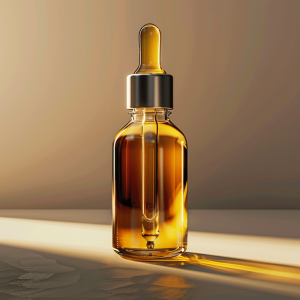
Endocannabinoids like anandamide are mood boosters.
They stimulate feelings of ‘bliss’ and relaxation without causing euphoria. Most people feel at ease within an hour or two of using CBD gummies or tinctures.
Stressors that would typically irritate them become easy to ignore.
Bolstering mood and enhancing its stability means less stress in the long run. It’s a great, complementary way to use CBD products for stress alleviation.
What is the Best CBD Oil for Stress in Australia?

Because everyone experiences stress and responds to CBD differently, there won’t be a single ‘best’ CBD oil in Australia for stress.
You’ll need to find a product that works for you.
You can use CBD gummies, capsules, creams, vapes or even sublingual.
Each is a viable way to obtain calming, mentally soothing effects.
Choose a product type based on your tastes and preferences. You can always change your mind later or swap to a different product depending on the results you’re getting. Most people use CBD oil for relaxation because it’s easy to dose, straightforward to use and transportable. It’s very easy to take a few drops when you need to de-stress or in your daily coffee. But others prefer to take their CBD in other forms.
CBD gummies, for instance, offer a tastier way to consume CBD without the earthy flavour that oils often have.
Whatever product you choose, finding something you enjoy taking is a more significant consideration.
Staying consistent each day with your CBD doses often depends on enjoying it. If you don’t like a particular product, you’re better off switching to something you like than persisting with it.
This will lead to better results for relaxation over the long term. You’ll be able to stick to your doses more easily.
Keep this in mind when you’re shopping. To begin with, it’s a good idea to try out a few different CBD oils for stress in Australia to sample them and discover what you like. You can commit to one later.
Full-Spectrum vs Isolate CBD Oil for Relaxation

Most experts recommend full-spectrum CBD oil instead of CBD isolate when targeting reductions in stress levels.
But why is this?
There are several reasons.
Full-spectrum CBD oil contains various beneficial minor cannabinoids, like CBN and CBG, each of which has its own potent anxiolytic calming properties. CBN, for instance, is known for assisting with anxiety and sleep in similar ways to CBD via the endocannabinoid system. Combining such cannabinoids with CBD amplifies the potency of the formula for reducing stress.
Additionally, full-spectrum products contain naturally occurring aromatic compounds called terpenes. Terpenes like myrcene and linalool help cannabinoids like CBD be absorbed, a process called the ‘entourage effect’. The compounds improve cannabinoid receptor permeability and the amount of each cannabinoid your brain will absorb. They are synergistic with cannabinoids, boosting their stress-alleviating effects.
Plus, many terpenes themselves offer stress-relieving effects. Linalool, for instance, is known to support calmness, better mood and reduced stress sensitivity. It’s the primary terpene in lavender, which is why the plant has such calming essential oils.
One downside of full-spectrum CBD oil formulations is they are less refined and so contain trace amounts of THC. THC can worsen stress and contribute to anxiety. Avoiding it is wise for those who are susceptible to mental illness or stress.
They’re slightly less potent for stress relief but have added safety from THC.
It’s a trade-off you’ll need to consider when you choose a CBD oil in Australia.
Whatever you choose, ensure you select a pure product with no additives and a clear certificate of analysis. Check this certificate to confirm your product doesn’t contain THC and is high quality.
How CBD Works for Relaxation

CBD oil reduces stress by activating cannabinoid receptors in the brain, which are part of the endocannabinoid system.
These receptors are the main pathway by which it helps people to relax deeply.
When the oil is consumed, CBD molecules within it bind to cannabinoid receptor sites. In response, the brain secretes calming endocannabinoids such as anandamide.
Anandamide and other endocannabinoids help to alleviate stress by downregulating the stress response. In turn, people feel relaxed, composed and collected. For this reason, CBD is known as an ‘anxiolytic’ compound. ‘Anyxiolytic’ means a chemical that can reduce stress or anxiety in the brain.
CBD oil is beneficial for stress as it can be taken before a stressful event or activity to mitigate its impact. But it’s also usable as a daily stress aid to lower overall stress levels and holistically improve health.
Surprisingly, CBD products are entirely safe, too. But some people get confused on this point due to the other prominent cannabinoid called THC. THC is psychoactive and can worsen feelings of mental distress among those with stress susceptibility. It has a much greater risk of detrimental side effects and can cause issues with dependence and mental illness. Comparatively, CBD oil has very minimal side effects.
Instead, it’s therapeutic for the mind, non-addictive and helps users to regain mental balance. Let’s look at some of the top ways CBD oil relieves stress and calms.
CBD Oil for Relaxation: Indirect Benefits

We’ve delved into the negative impacts stress has.
While its dangers are real, so is the usefulness of CBD oil for relaxation.
Let’s explore how it prevents some detrimental health consequences of chronic stress over longer periods.
Preventing Weight Gain from Stress

Excessive stress can cause you to both lose muscle and gain fat.
It reduces metabolic health and can lead to weight gain.
These issues are the result of the stress hormone called cortisol. Excessive cortisol exposure can cause muscle loss, weight gain, fatigue, high blood pressure and lowered immunity.
It stimulates your hunger and appetite for carbohydrates as a survival mechanism.
Many who are stressed resort to ‘stress eating’ and crave sweet or fatty junk foods in response to cortisol. This can lead to overeating, binging, increased fat storage and heart disease.
Simultaneously, cortisol stimulates the body to break down muscle, enabling it to use it as fuel for survival.
However, lower muscle mass also means reduced metabolism and decreased physical endurance, exacerbating weight gain.
Lowering cortisol levels and keeping them at normal ranges is critical for avoiding these problems.
CBD oil can help with this crucial area by helping you relax. Over time, it can support weight loss and help maintain metabolic health by mitigating chronic stress.
Reducing Cardiovascular Disease Risk

Cardiac risks like heart disease become substantially heightened if you’re constantly stressed out.
Cortisol from long-term stress increases heart rate and blood pressure, which can strain the heart. It can weaken the body’s ability to circulate blood over time, reducing the efficiency of cardiovascular function.
Those who are chronically stressed are more likely to suffer from:
- High blood pressure (hypertension)
- Inflammation of the blood vessels and atherosclerosis
- Narrowing of the arteries
- Strokes and heart attacks
- Types 2 diabetes
In time, this can cause problems with blood flow, limiting oxygen to the rest of the body. It can limit exercise performance and organ function.
Taking CBD gummies to relax is a method to help naturally counteract these effects by limiting cortisol release. Combined with other stress management techniques, it can effectively reverse these detrimental cardiac effects of stress.
Avoiding Weakened Immunity

Those who are chronically stressed also suffer from immune system problems.
Stress suppresses immunity.
It weakens the body’s ability to fight infection down to the cellular level.
Being overly stressed reduces your resilience to diseases, viruses, and pathogens.
Over time, this will mean you get sick more often from common colds and have more frequent illnesses.
You can probably remember when you were under the pump or feeling burned out and getting colds or sicknesses.
These problems are also often worsened by the sleep-disrupting effects of chronic stress.
When sleep is impaired from insomnia caused by stress, it further weakens immunity and lowers the body’s defences against disease.
Staying calmer and sleeping better by using CBD oil for relaxation at night can help in mitigating these effects. It will mean staying better protected against illnesses caused by stress’ detrimental immune effects.
Lowering Mental Illness Risks from Stress
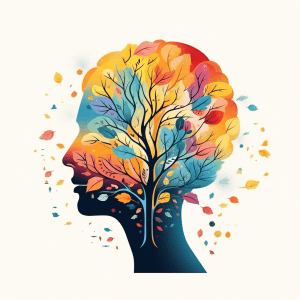
Stress is a risk factor for mental illnesses.
It increases the risk of conditions like:
- Anxiety disorders
- Depression and mood problems
- Eating disorders like binge eating
- Burn out
- Substance use disorders
Very acute stress events can even cause mental trauma, such as post-traumatic stress disorder. It is also known to impair memory, cause problems with concentration, impact mood and irritability, and damage our learning ability.
These neurodegenerative effects can worsen the longer a person is exposed to heightened stress levels. The brain’s neurotransmitter levels and natural energy balance become disrupted.
Again, it’s vital to stop these risk factors from chronic stress by preventing it from occurring. One way to achieve this is to take advantage of CBD’s relaxing effects and calmness-inducing properties.
Hormone and Digestive Support

Hormones and even gut health can get disrupted by chronic stress.
That’s because the mind is directly linked to the gastrointestinal and endocrine (hormone) systems.
Mental distress can bleed into them and cause dysfunction.
Bowel irritation, bloating, hormone dysregulation and irritability can result.
A significant percentage of irritable bowel syndrome cases, for example, relate directly to chronic stress. You likely know of someone or have experienced stomach discomfort that can happen when you’re stressed and anxious.
Stress impacts the mind-gut connection, causing digestive issues. This even contributes to digestive intolerances that result from hormonal imbalances caused by stress.
Hormone production and regulation also get thrown into chaos from too much stress. Hormones like insulin can run haywire and cause blood sugar to crash or spike. It poses added risks for diseases like diabetes or hyperglycemia.
Sex hormones can become suppressed, causing libido drops, dampened energy and mood swings. Overworked adrenal glands can lead to chronic fatigue and exhaustion. The dangers of chronic stress for hormone and gut balance can’t be understated.
Taking CBD oil to relax will reduce the disruptive impacts of stress on the hormones or gut. Bringing these systems back into homeostasis (a balanced internal state) means the bowels and hormones can stay healthy.
How to Use CBD Oil for Stress
Using CBD oil to target stress reduction can help substantially in counteracting its symptoms directly while also combating many of its detrimental side effects in the body and mind.
As such, it’s valuable not just for mental relaxation and a stable mental state but also for improving overall health for those suffering from stress.
Note that it won’t stop stress from occurring. It only helps to take the edge off and reduce its impact.
The best results in using CBD products for stress relief in Australia are obtained when other stress management techniques are applied alongside it. Let’s cover a few tips on using these products, like CBD gummies, to relax best.
Best Dosage for Relaxation

The amount of CBD you’ll need to relieve your stress will be personal to you.
Everyone experiences stress differently and responds to CBD gummies or oil to varying degrees.
For instance, larger individuals typically need higher doses to achieve the same results as smaller people. Your body mass, metabolism, natural cannabinoid sensitivity, health status and age influence your responsiveness.
Product strength is also essential, as higher-strength CBD oil requires less dosage for equivalent concentrations (mg) of CBD per mL.
For beginners, a good dose is around 10-15mg per day (several drops). This will help you check for intolerances or sensitivities.
Try this out for a few weeks and gauge your reactions and stress levels.
Over time, you can raise the doses if you tolerate it well and need higher amounts for relief. It will take some time to experiment with different daily dosages to find the right amount for you. You might also look at other product options, like CBD edibles, that are equally effective for relaxation.
Patience and consistency are essential to finding the best dosages for calmness. Keep trying until you get there. It’s well worth the effort and will reward your long-term well-being.
How Long Does it Take to Calm You?

It can take some time for CBD oil to work and start relaxing you.
While it’s absorbed within 1-2 hours, those with more severe or chronic stress might need to use it for days or weeks before seeing results.
Consistency in dosing is vital here. It’ll help ensure the endocannabinoid system is adequately activated and can work its calming magic.
Daily use is best to achieve more calmness faster.
Using CBD oil each day means your endocannabinoid system can produce greater levels of endocannabinoids that assist in calming your stress response.
Stay persistent, and don’t give up if you aren’t directly experiencing the effects you expected. Increase the dose if needed as you become accustomed to using it.
Timing your CBD oil intake around stressful events can also help maximise its efficacy in mitigating symptoms. For example, if you know you have a stressful conversation or meeting coming up, using it an hour or two before it starts can help calm the nerves.
However, simply dosing in the morning or during the day can often be a great way to mitigate work or study stressors.
Explore CBD for Sleep

Using CBD oil to reduce stress before sleep is another method by which you can target stress while building mental resilience against stressors.
Taking it an hour or two before bedtime helps many get to sleep more easily. It’s handy if stress keeps you up at night and you need a way to calm down.
Often, those who are chronically stressed suffer from various forms of insomnia and have poorer sleep quality, reduced sleep length, plus less REM sleep.
CBD oil helps users recover each night more effectively by counteracting these issues.
You’ll see better mental energy and mood and reduced sensitivity to stress over time.
Implementing Other Stress Management Practices

There are many ways that stress can be managed more effectively beyond using CBD gummies or other products.
In fact, these shouldn’t be your first choice when treating stress. Addressing the sources or causes of your stress and adopting healthy coping mechanisms should be the priority.
Exploring CBD products for relaxation at a later point can be viable for added support.
You’ll see more significant reductions in overall stress if you treat it at the source. Adding CBD oil for stress into your regime won’t necessarily help symptoms if the issues causing your stress continue to occur.
Checking in with a doctor or therapist is also advisable to get guidance on improving your stress levels.
Regularly working on your stress management and practising self-care techniques like:
- Exercising
- Maintaining a healthy lifestyle and diet
- Minimising alcohol or smoking
- Prioritising sleep and pre-bed rituals
- Adopting calming practices like yoga
- Using mindfulness and meditation
It will help you on your pathway to stress reduction.
Incorporating CBD oil once you’ve set up the foundations for mental calmness can amplify the results you achieve.
Conclusion

CBD oil’s natural stress relief benefits help more people in Australia to relax.
It works so well for stress symptoms due to its potent anxiolytic effects within the endocannabinoid system and serotonin and GABA receptors.
Each of these enables CBD oil to help reduce sensitivity to stressors, boost mood, support better sleep, calm the nervous system and ease the mind.
Modern lifestyles are highly stressful. Chronic stress is widespread and is detrimentally impacting people’s well-being. It causes all manner of health risks from cardiovascular diseases, immune system impairment, insomnia, mental illness susceptibility and weight gain.
It’s no wonder that people are using CBD tinctures for relaxation to minimise these issues naturally. You can use them daily to help minimise the impact of stress in everyday life and regain control. Try them during the day or even before bed for a calmer, more composed mental state.
When purchasing a CBD product for stress management, seek out full-spectrum formulations that enable you to benefit from therapeutic terpenes and minor cannabinoids.
Combining CBD oil usage with lifestyle modifications, mindfulness, stress management practices, and avoiding stressful situations can help you maximise relief.
FAQs
Different methods of consuming CBD will work slower or faster. For instance, sublingual CBD drops taken under the tongue should be felt after 15-30 minutes and last a few hours. Edible products that pass through the digestive system, like CBD gummies, will take 1-2 hours to absorb but last longer. Similarly, topicals can take an hour or more to work but will have extended effects once absorbed. Each method of administration enters your bloodstream at different rates, affecting how fast they relax you and provide relaxation. Other factors can also play a part in the absorption rate. For instance, the severity of stress, individual response, and the presence of other cannabinoids (full-spectrum vs. isolate) can influence the speed of the effects.
You can put CBD oil under your tongue sublingually if you need rapid stress alleviation or consume it orally for longer-lasting benefits. CBD oil placed under the tongue should be held for 30 seconds to a minute to enable it to enter the bloodstream. This means it will reach your cannabinoid receptors much faster to start alleviating stress symptoms and provide relaxation.
Most people experience the relaxing effects of CBD oil over several hours. How long it lasts will vary based on several factors, like an individual’s metabolism, sensitivity to cannabinoids, and the strength of their product. Ingested products tend to provide relaxation for the most prolonged period as they’re more slowly absorbed. Sublingually used CBD oil acts the fastest and is better for acute stress but won’t relax you for as long. Keep in mind the relaxation provided by the product is often subtle, and it doesn’t induce a “high” like THC (tetrahydrocannabinol). Most people also see better relaxation when they use CBD oil consistently over time.
Overthinking and racing thoughts are common symptoms of stress and anxiety. In both cases, CBD can assist due to its anxiolytic properties that help to mitigate anxious thoughts. For those who are neurotic or struggle to control constant overthinking, it can be a valuable tool to assist in calming the mind. It won’t work for everyone, but it is worth exploring with other therapies and stress management practices.
CBD relieves stress because it has anxiolytic (anxiety-reducing) properties. It works with the brain’s CB1 cannabinoid, serotonin and GABA receptors. Acting on these receptors enables it to influence the stress response and reduce sensitivity to stressors. It also aids with mood, sleep, and anxiety via similar pathways in the brain. Endocannabinoids produced when CBD oil is ingested, such as anandamide, help to relax the mind. These are powerful therapeutic chemicals that help to ease nervous system activity and mental distress.
It’s easy to buy CBD oil for stress in Australia today. CBD products have been legal since 2021 after being rescheduled by the TGA in Australia. Individuals can purchase them over the counter or online without needing a prescription. Products are limited to doses of up to 150 mg per day. Physical dispensaries or pharmacies may also carry CBD oil, but they are typically connected to the medical cannabis program and require a prescription. Another option is buying CBD oil online in Australia, which enables more excellent product choices and lower prices. It does have additional risks due to many lower-quality suppliers selling online. This can be mitigated by doing thorough research on a supplier’s products and obtaining a certificate of analysis on their CBD oil before purchasing.
References
- Mayo Clinic Staff (2021). Chronic stress puts your health at risk. [online] Mayo Clinic. Available at: https://www.mayoclinic.org/healthy-lifestyle/stress-management/in-depth/stress/art-20046037.
- Australia, H. (2022). Stress. [online] www.healthdirect.gov.au. Available at: https://www.healthdirect.gov.au/stress#:~:text=Stress%20can%20be%20triggered%20by.
- Mind (2022). What Is stress? [online] www.mind.org.uk. Available at: https://www.mind.org.uk/information-support/types-of-mental-health-problems/stress/what-is-stress/#:~:text=Stress%20can%20cause%20mental%20health
- Zuardi, A.W., de Souza Crippa, J.A., Hallak, J.E.C., Campos, A.C. and Guimarães, F.S. (2017). Chapter e13 – The Anxiolytic Effects of Cannabidiol (CBD). [online] ScienceDirect. Available at: https://www.sciencedirect.com/science/article/pii/B9780128007563000971#:~:text=CBD%20significantly%20decreased%20subjective%20anxiety
- Verywell Mind. (n.d.). What to Know About CBD Oil for Stress Relief Treatment. [online] Available at: https://www.verywellmind.com/what-to-know-about-cbd-oil-for-stress-relief-6741087
- Alexis, G. (2022). Is CBD Oil Good for Stress? [online] Phenix Health. Available at: https://phenixhealth.com.au/is-cbd-oil-good-for-stress/
- Pretzsch, C.M., Freyberg, J., Voinescu, B., Lythgoe, D., Horder, J., Mendez, M.A., Wichers, R., Ajram, L., Ivin, G., Heasman, M., Edden, R.A.E., Williams, S., Murphy, D.G.M., Daly, E. and McAlonan, G.M. (2019). Effects of cannabidiol on brain excitation and inhibition systems; a randomised placebo-controlled single dose trial during magnetic resonance spectroscopy in adults with and without autism spectrum disorder. Neuropsychopharmacology, [online] 44(8), pp.1398–1405. https://pubmed.ncbi.nlm.nih.gov/30758329/#:~:text=Across%20groups%2C%20CBD%20increased%20subcortical,systems%20respond%20differently%20in%20ASD.
- Pinto, J.V., Saraf, G., Frysch, C., Vigo, D., Keramatian, K., Chakrabarty, T., Lam, R.W., Kauer-Sant’Anna, M. and Yatham, L.N. (2019). Cannabidiol as a Treatment for Mood Disorders: A Systematic Review: Le cannabidiol comme traitement des troubles de l’humeur: une revue systématique. The Canadian Journal of Psychiatry, 65(4), pp.213–227. https://www.ncbi.nlm.nih.gov/pmc/articles/PMC7385425/#:~:text=Among%20them%2C%20250%20users%20reported,by%20itself%E2%80%9D%20the%20depressive%20symptoms.&text=Change%20in%20mood%20after%20consumption,and%20high%20levels%20of%20CBD.
